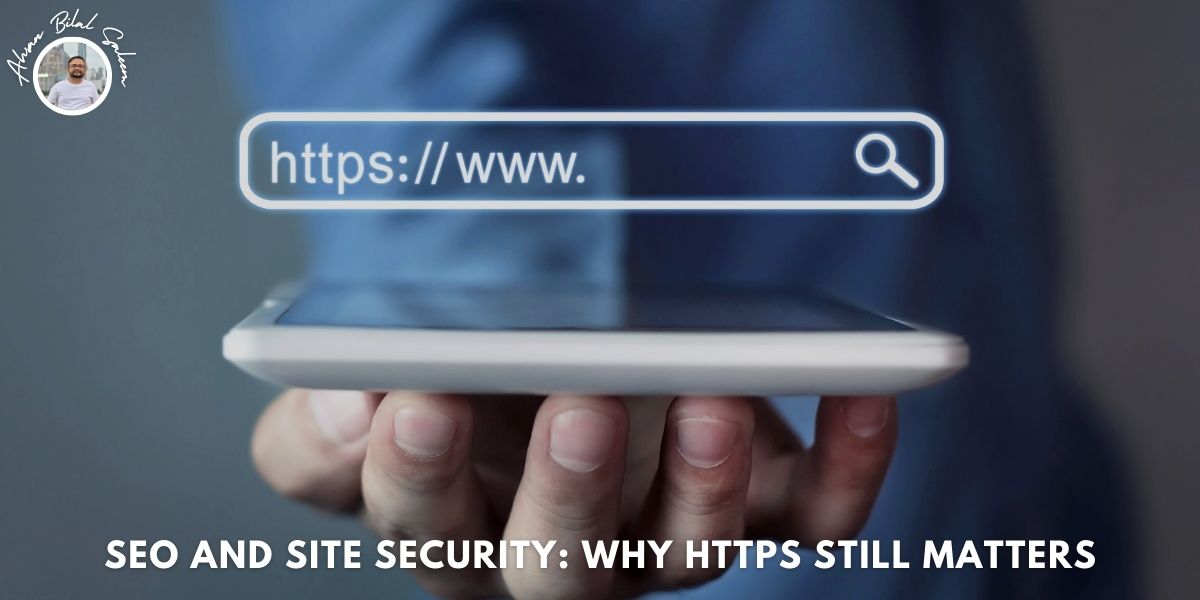SEO and Site Security: Why HTTPS Still Matters
In the ever-evolving world of search engine optimization (SEO), site security remains one of the most critical yet often overlooked elements. HTTPS, short for HyperText Transfer Protocol Secure, has been a ranking factor for Google since 2014. While many website owners have already transitioned to HTTPS, some still question whether it is truly necessary. This article explores why HTTPS still matters in 2024, how it impacts SEO, and why it should remain a top priority for businesses aiming to rank higher in search results.
Understanding HTTPS and Its Importance
HTTPS is the protected variant of HTTP, the convention utilized for information move between a client’s program and a site. HTTPS ensures that all communications between the user’s device and the website are encrypted, preventing malicious entities from intercepting sensitive information such as passwords, credit card details, and personal data.
Web browsers like Google Chrome and Mozilla Firefox now prominently display warnings for sites without HTTPS, alerting users that the connection is not secure. This not only impacts user trust but also increases bounce rates, as visitors are less likely to engage with an unsecured website.
Why HTTPS Matters for SEO
Google’s Ranking Algorithm Prioritizes Security
Google has been transparent about HTTPS being a ranking factor. Websites with HTTPS are given preference in search engine result pages (SERPs). While it may not carry the same weight as content quality or backlinks, it can still provide an edge over competitors who have not adopted HTTPS.
User Trust and Engagement
A secure website builds trust among users. Visitors are more likely to stay and engage with a website that displays the padlock symbol in the browser address bar. When users feel secure, they are more inclined to complete purchases, fill out contact forms, or subscribe to newsletters — all actions that contribute to SEO through reduced bounce rates and increased dwell time.
HTTPS Enhances Data Integrity
HTTPS ensures that data transmitted between the user and the website remains unaltered. Without HTTPS, malicious actors can inject unwanted advertisements, phishing links, or malware into your website, which could harm your site’s reputation and drastically affect SEO performance.
Improves Referral Data Accuracy
When traffic passes from an HTTPS website to an HTTP website, referral data is often lost in analytics tools. Instead, the visit is often recorded as “direct traffic.” By having an HTTPS-enabled website, you ensure accurate referral data tracking, which is vital for SEO performance analysis.
The Role of HTTPS in Modern SEO Practices
With Google’s focus on user experience, HTTPS is not just a recommendation but a necessity. The introduction of Core Web Vitals further emphasizes security as part of the overall user experience. A secure website complements key metrics like loading speed, interactivity, and visual stability, all of which are part of Google’s ranking criteria.
Additionally, Google’s Chrome browser flags non-HTTPS websites as “Not Secure,” which can deter users. If your site lacks HTTPS, you risk losing traffic, conversions, and credibility.
Common Misconceptions About HTTPS
Despite its importance, several misconceptions prevent some businesses from adopting HTTPS:
- “HTTPS Slows Down My Website”: Modern SSL certificates have minimal impact on website speed, and advancements in technology have made HTTPS faster than ever.
- “HTTPS is Only Necessary for E-commerce Sites”: While e-commerce websites deal with financial data, every website benefits from HTTPS to protect user privacy and maintain trust.
- “HTTPS Migration is Expensive”: Many hosting providers now offer free SSL certificates, making HTTPS adoption cost-effective.
How to Transition to HTTPS
Migrating to HTTPS is no longer a complex task, thanks to tools and resources provided by hosting providers. Here are the basic steps:
- Obtain an SSL Certificate: Many hosting providers offer free SSL certificates via services like Let’s Encrypt.
- Install the SSL Certificate: Follow your hosting provider’s instructions for SSL installation.
- Update Website URLs: Ensure all internal links, images, and resources are updated to HTTPS.
- Redirect HTTP to HTTPS: Implement 301 redirects to ensure that all HTTP traffic is redirected to HTTPS.
- Update Your Sitemap and Robots.txt: Submit the updated sitemap to Google Search Console.
- Test Your Website: Use tools like SSL Labs or Google Lighthouse to check for any errors.
Conclusion
During a time where online security is principal, HTTPS is presently not discretionary — it’s fundamental. From improving your SEO ranking and user trust to ensuring accurate analytics and data integrity, HTTPS plays a critical role in your website’s success. As search engines continue to prioritize user safety, adopting and maintaining HTTPS is not just a best practice but a necessity for long-term online growth.
Businesses and website owners who overlook HTTPS risk not only lower rankings but also a loss of credibility and user trust. Investing in HTTPS is not just about SEO—it’s about creating a safer and better experience for every visitor to your website.










